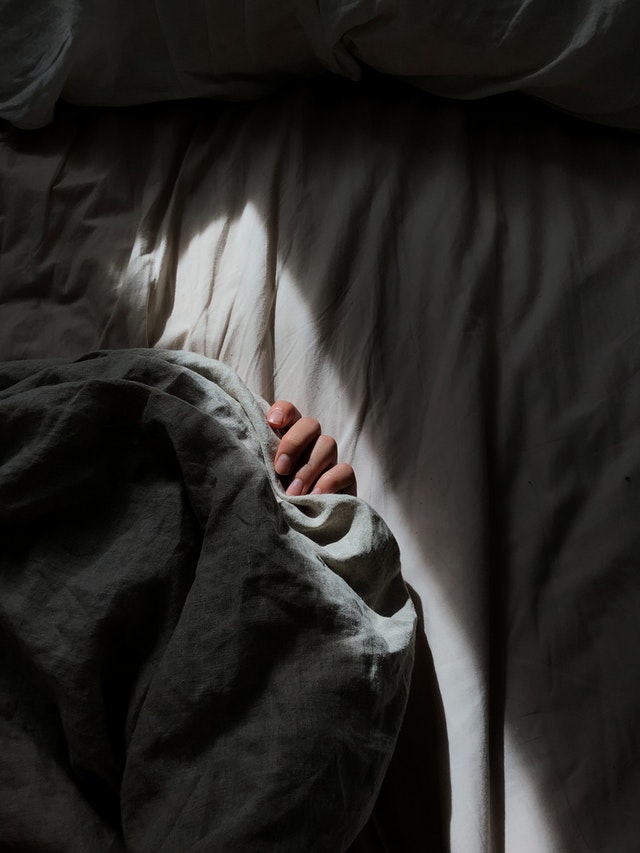Health has been defined by the World Health Organization (WHO) as “a state of complete physical, mental and social well-being and not merely the absence of disease or infirmity”.

Mental health has been defined by WHO as “a state of well being in which every individual (including you and I) realizes his or her potential, can cope with the normal stresses of life, is able to work productively and fruitfully and is able to make a contribution to her or his community.”
These difficulties in feelings may be experienced as excessive sadness, being overwhelmed or frustrated as a result of life’s difficulties and may progress to a state where someone begins to feel very sad, empty or hopeless (which may be expressed as irritability in children and adolescents).
Such person or persons may experience agitations, fatigue or reduced energy and motivations or inability to carry his or herself (that is, motor retardation). He or she may lose weight (when not dieting) or gain weight significantly; there may be loss of interest in what he or she enjoyed during before (which is referred to as Anhedonia).
He or she may experience inability to sleep or sleeps too much, weeps or cries uncontrollably, loses appetite or eats too much, begins to feel worthless and inappropriately guilty or hopeless and even considers that life is not worth living which may result in suicidal ideations, plans and even attempts.

When a person experiences at least 5 of these symptoms, many days for at least two weeks, these could be indicative of a mental health condition referred to as Major Depressive Disorder (commonly referred to as Depression), of which an assessment with mental health professionals would be required for a Diagnosis.
A lot of times, when people express that they are depressed, what they really mean is that they feel sad. Depression is beyond feeling sad.
It is important at this stage to establish the difference between acute and chronic health condition?
An acute health condition usually begins suddenly and with treatment, the symptoms clear off quickly. A chronic health condition on the other hand is different. It begins gradually, sometimes not noticed and persists or endures over a period of time.
Depression is a chronic condition, and it is usually treated or managed and not necessarily cured. A key principle regarding chronic conditions is SELF MANAGEMENT.
Having explained Depression, there are ways to cope with the experience or symptoms as the case may be.
The first point I will like to raise here is that it is essential that one admits what he or she is experiencing; denial does not do much good. Admittance empowers one to seek for help.
The second point is that it is also important to seek for help from the right people and places.
The third point is that holistic care is better for an improved outcome. Holistic care is better for an improved outcome because the causes of depression are diverse – it can be caused by biological factors (e.g., genetic predisposition, the reduction in a Neurotransmitter named Serotonin), or environmental factors (e.g., the loss of a job, the birth of a baby) or lifestyle (e.g., smoking Marijuana). However, some responses to loss may be considered normal in context of culture and may not necessarily be indicative of a depressive disorder or mood.
There are a number of coping measures available to deal with depression. These coping measures include but are not limited to:
- Psychotherapy
- Recreational therapy
- Art Therapy
- Lifestyle
- Pharmacotherapy
- Spirituality
Psychotherapy usually involves a client and a clinician whether in an individual or group setting. Cognitive Behavioural Therapy (CBT) for depression might be considered depending on the needs of the client(s). In CBT, the client and therapist discusses how thoughts, relationships and activities affects ones mood

On that note, it is healthy for a person to know what he or she is thinking by being mindful (aware) of his or her thoughts and the effects it is having on him or her. A lot of the time, our thoughts affects how happy or sad we feel.
Also note that our relationships impact us positively or negatively and it important to realize this earlier, are you in a relationship that is toxic (whether physically or virtually)? To cope with depressive symptoms, one has to be deliberate in the choices of relationships. If it is a relationship you have little control over, please spend as little time as possible with those people,
You may also consider sanitizing your social media contacts if you feel under undue pressure because of a person or persons.
In addition, it is healthy for a person to be mindful of his or her activities and the effects that they are having on him or her. Ask yourself: do you have too little or too much to do? Do you make out time for self-care? Some people do not respond very well in engaging in too much or too less activities. If one is taking on too much than he or she can achieve, he/she may eventually under-perform and this might affect his/her self-esteem negatively thereby affecting his or her mood. We all have a responsibility to learn assertive refusal skills
Exercising and gratitude journal-ling (that is writing out the things or happenings that one is happy about or grateful for) are also very helpful.
From a recreational perspective, one can cope with depression by engaging in exercises or games, whether early in the day, later in the day or as it suits his or her schedule. Exercises include but are not limited to swimming, engaging in lawn tennis, table tennis, jogging, walks, among others. This can be done individually but better in a group of supportive people. A group of supportive people because one can tend towards isolation when he or she is experiencing depression, so the more one socializes in a healthy way, the better.
When we exercise, our body secretes a feel-good hormone which is regarded as a natural “high”. This hormone is called Endorphins.
From a lifestyle perspective, it’s important to have an attitude of gratitude. It is important that we recognize and acknowledge the little and seemingly-insignificant things that are working in our life. Keeping a gratitude journal enables one to keep track of things that are working or positively, like breathing effortlessly, blinking the eyes, the feel of the wind, eating rice, having a thumb, carried out a presentation, participated in a WhatsApp group on coping with depression, and the list goes on and on.
When you document things that are going on well and not fixate on the negatives, you can look back on your journal and be encouraged to keep trying. There are gratitude apps you might also use a note book and pen. There is a Gratitude app has helped me to focus on the positive, appreciate and notice even the small things that makes us happy. It is free and you can get it at https://gratefulness.page.link/app
In addition to the point on “lifestyle”, one might have been used to negative coping measures, e.g. drinking alcohol, smoking cigarettes, weed (marihuana/marijuana, igbo/skunk/loud/Arizona) to cope with stress. However, all of these substances have depressive potential. Instead of coping with stress by engaging in the above-mentioned options, it is helpful to engage in deep breathing exercises, take a walk, listen to music, have a cool bath, watch a hilarious movies, etc.
In addition, observe the colour of your room, is it dark or brightly painted? Bright colours lighten the mood. Furthermore, sleeping and feeding styles also matter. It is helpful to eat fruits and vegetables instead of processed and can foods. It is said that banana improves one’s mood.
On sleep, practicing sleep hygiene is helpful if you find it difficult to sleep. Go to bed at the same time every night. Use your bed only for sleeping (some people find that this is the most difficult one to deal with, but it is very necessary if sleep hygiene is to be effective)
Sleep in a quiet, dimly-lit room. It is essential to sleep in a comfortable and serene room with even temperature (neither too hot nor cold) and avoid eating heavy close to bedtime. Also avoid taking caffeinated drinks close to bed time (e.g. coffee – this stimulates the Central Nervous System and eventually keeps you awake). Some people find that they initiate sleep with these drinks but they also admit that they find it difficult to sustain sleep.
You could also keep a sleep diary. Document the time you went to bed, an estimated time of when you fell asleep, number of times you woke up at night, the kind of exercises you engaged in the day, medication taken, if any, time you awoke from sleep and time you eventually stood up from the bed. The sleep chart enables one to monitor progress.

Exercise during the day but not too close to bedtime. The rationale is that when you exercise, your body feels tired and seeks rest.
From a pharmacotherapy perspective, depending on the severity of the symptoms experienced, a physician may prescribe some medication after due assessment. It is usually recommended that one should not discontinue the medication on his or her own when he or she feels better, a medication review is usually helpful first of all.
However, medication is more effective when combined with other measures, e.g. psychotherapy and lifestyle.
From an art therapy perspective, Mandala colouring is very helpful (you can please find mandala worksheets that you can print online). With the aid of coloured pencils, one can engage in this colouring and derive relaxation, and mindfulness among others from it. You may also engage in painting, drawing, dance, etc.
From a spirituality perspective, it is very helpful that we connect with our higher power who to me is God through Jesus Christ. Spirituality (not just religiosity) enhances a sense of meaning in life and, enhances hope, faith and a sense of well being.
It is helpful for one to participate in a support group where one can meet with people of similar experiences and one is encouraged. Support groups can be physical or virtual and have proven to be very helpful. In addition, having a pet, planting (horticultural therapy) is also helpful.
Furthermore, if one considers that he or she may not be adequately exposed to sunlight due to usually being in an air-conditioned environment, it will be helpful to do so. Vitamin D Deficiency (due to poor exposure to sunlight) can expose one to depressive symptoms.
Conclusively, it is also worthy to note that sleep is implicated in a lot of mental health challenges, usually the lack of adequate sleep. When a person sleeps, it is a restorative opportunity for the body system, especially a refreshing sleep where someone wakes up feeling rested.
One of the symptoms of depression is poor sleep, and on the other hand, poor sleep can trigger feelings of irritability, fatigue, among others. In order to cope well with depressive symptoms, sleep is essential and sleep hygiene are behavioural practices to achieve that.
Aside from sleep hygiene, medication can be helpful but it is safe to note that one can develop a dependence on sleep mediation in the long run.
Stay healthy!
ABOUT THE AUTHOR

Uyama Uyoata, is a trained female clinical psychologist who is passionate about mental and psychological well being.
She has gathered experience in providing counselling and psychological support within the boundaries of professional ethics for chronic conditions spanning depressive disorders, anxiety disorders and addiction. She is interested in mental health education, advocacy and interventions.

